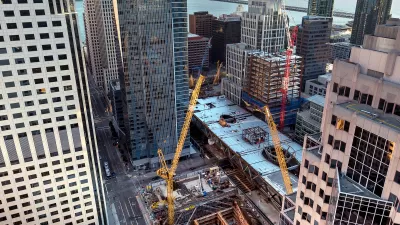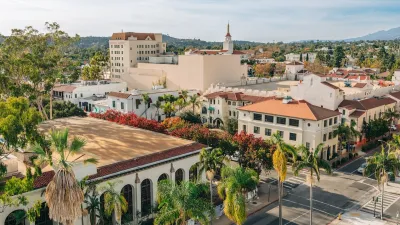A major housing organization with city contracts is neglecting poor housing conditions in its buildings while amassing lobbying power and political influence.

An investigation into a San Francisco housing nonprofit highlights how a lack of city oversight can harm vulnerable tenants while organizations take advantage of public funds. Josh Koehn and David Sjostedt report on the story in The San Francisco Standard.
“Internal financial records show that annual revenue for TODCO’s main nonprofit entity has more than doubled over the last decade while it has steadily reduced the share of revenue it spends on its residents, who are low-income and disabled seniors and formerly homeless people.” According to Koehn and Sjostedt, “In many ways, TODCO offers a case study of how nonprofits in San Francisco can leverage huge sums of taxpayer dollars for political activity while neglecting their core mission.”
The article details the organization’s growth and its involvement in San Francisco political causes—some overtly progressive, others aimed at halting development, in some cases preventing the construction of new housing. “TODCO’s eight properties in SoMa charge fair-market rates, and most of its 900-plus tenants pay 30% of their monthly income. The federal Department of Housing and Urban Development—with some assistance from the city’s Department of Homelessness and Supportive Housing—subsidizes the remaining cost.” Yet TODCO, led by John Elberling, “has become notorious for blocking market-rate housing projects.”
Meanwhile, “A review of complaints with the SF Department of Building Inspection confirmed that the eight SoMa properties owned by TODCO, which has $48.5 million in assets and receives multimillion dollar contracts from the city and U.S. Department of Housing and Urban Development, have repeatedly had issues with infestations, mold and heating in recent years.” The source article includes stories of shootings and drug overdoses in the buildings, which tenants say management has done little about.
FULL STORY: SF Housing Nonprofit Spends Big on Politics. Tenants Deal With Infestations, Overdoses

Alabama: Trump Terminates Settlements for Black Communities Harmed By Raw Sewage
Trump deemed the landmark civil rights agreement “illegal DEI and environmental justice policy.”

Planetizen Federal Action Tracker
A weekly monitor of how Trump’s orders and actions are impacting planners and planning in America.

Why Should We Subsidize Public Transportation?
Many public transit agencies face financial stress due to rising costs, declining fare revenue, and declining subsidies. Transit advocates must provide a strong business case for increasing public transit funding.

Understanding Road Diets
An explainer from Momentum highlights the advantages of reducing vehicle lanes in favor of more bike, transit, and pedestrian infrastructure.

New California Law Regulates Warehouse Pollution
A new law tightens building and emissions regulations for large distribution warehouses to mitigate air pollution and traffic in surrounding communities.

Phoenix Announces Opening Date for Light Rail Extension
The South Central extension will connect South Phoenix to downtown and other major hubs starting on June 7.
Urban Design for Planners 1: Software Tools
This six-course series explores essential urban design concepts using open source software and equips planners with the tools they need to participate fully in the urban design process.
Planning for Universal Design
Learn the tools for implementing Universal Design in planning regulations.
Caltrans
Smith Gee Studio
Institute for Housing and Urban Development Studies (IHS)
City of Grandview
Harvard GSD Executive Education
Toledo-Lucas County Plan Commissions
Salt Lake City
NYU Wagner Graduate School of Public Service





























